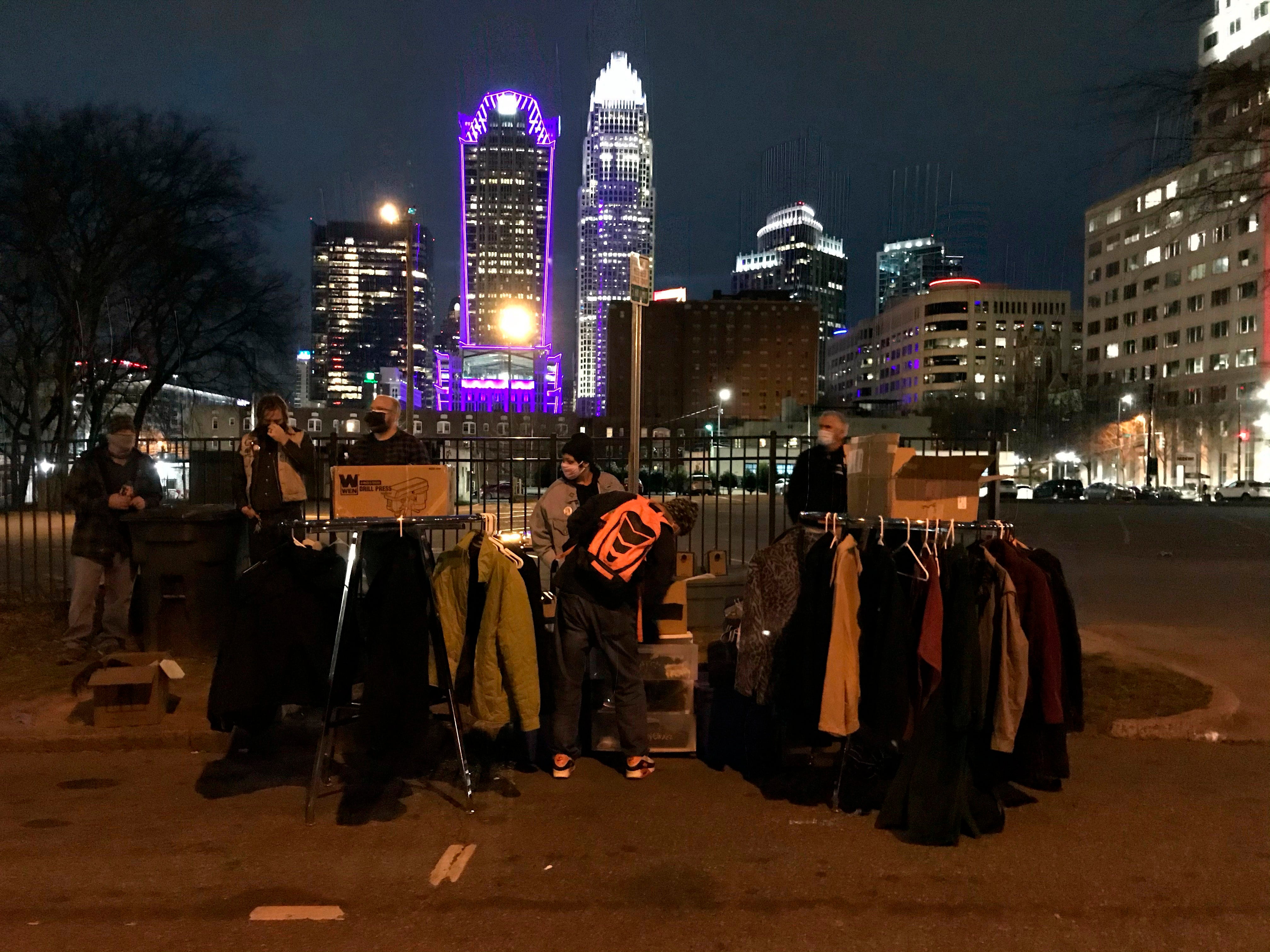Charlotte trio supports homeless people during pandemic
In North Carolina's largest city, Magena Morris, Tyler Bone and Nic White are on a mission to help homeless people, a population that has grown during the pandemic and economic downturn

Your support helps us to tell the story
From reproductive rights to climate change to Big Tech, The Independent is on the ground when the story is developing. Whether it's investigating the financials of Elon Musk's pro-Trump PAC or producing our latest documentary, 'The A Word', which shines a light on the American women fighting for reproductive rights, we know how important it is to parse out the facts from the messaging.
At such a critical moment in US history, we need reporters on the ground. Your donation allows us to keep sending journalists to speak to both sides of the story.
The Independent is trusted by Americans across the entire political spectrum. And unlike many other quality news outlets, we choose not to lock Americans out of our reporting and analysis with paywalls. We believe quality journalism should be available to everyone, paid for by those who can afford it.
Your support makes all the difference.Once a month, Magena Morris, Tyler Bone and Nic White bring racks loaded with clothes into Charlotte’s largest homeless encampment and invite residents to shop at no cost
The idea is to give residents of “tent city” the feeling of browsing at a normal store and spare them from having to dig through piles of secondhand apparel.
“It’s much more humanizing,” Bone said. “It creates more of a real experience — not just, ‘Dig through this box and hopefully you’ll find a pair of shoes that match.’”
“We see them smiling,” White agreed. “Because they’re like, ‘Oh, you cared about me enough to provide me the opportunity to choose my own clothing in a way that dignifies me.’”
Relying on donated items to stock their “mutual-aid free store,” Morris, Bone and White are providing not just clothes but much-needed goods from batteries to books for homeless people in North Carolina’s largest city — a population that’s grown during the pandemic and economic downturn.
It all started soon after the coronavirus hit, when Bone noticed the increasing number of tents sheltering displaced Charlotteans while driving to work. He mentioned it to Morris, who sewed 300 face masks to distribute.
She worried about what conditions would be like for them in the winter, so the married couple built donation boxes from scrap wood from her grandmother’s old deck and stationed them near local businesses.
They collected more donated goods than they expected. And then they set out to launch the free store, teaming up with White, who a year earlier founded the homeless support group Not Fade Away.
To facilitate the effort, Morris and Bone repurposed BleachImpaired.com, an online shop where previously they sold T-shirts and buttons to make a bit of extra money. Today it directs people to the drop boxes, lets users donate money for tent city relief and lists specific items requested by people, everything from underwear to heating equipment to rat-proof storage.
Some of what they collect goes to other aid groups and some directly to the people they meet. Bone, a carpenter by day, makes deliveries at night.
One day it may be 50 blankets for an organization that is collecting them; the next, a tent for someone living on the street. The three get to know the people they help, establishing relationships rather than doing one-off donations.
They also try to address needs beyond the essentials: One day a man mentioned that he had lost a treasured graphic novel; when Morris returned, she brought a copy wrapped in gift paper.
Since that experience she has teamed up with two bookstores on a project she hopes will bring a library to the tent city.
For Morris, the mission is personal.
She was born into homelessness and spent many a night sleeping in cars, motel rooms and tents, or on the couches of friends and relatives. It was through support from others that she eventually achieved stability in her own life.
“Mutual aid saved my life,” Morris said. “It was the people that helped.”
She, Bone and White are now focusing on providing Internet access, phones and charging stations, things that are needed to get an important document, apply for a job or graduate from school.
“Our mutual aid free store is how we build relationships with this community,” Morris said. “It is not going to solve homelessness. It does meet needs, though — it meets needs to sustain life, and that’s why it’s valuable.”
___
“One Good Thing” is a series that highlights individuals whose actions provide glimmers of joy in hard times — stories of people who find a way to make a difference, no matter how small. Read the collection of stories at https://apnews.com/hub/one-good-thing
___
Associated Press religion coverage receives support from the Lilly Endowment through The Conversation U.S. The AP is solely responsible for this content.